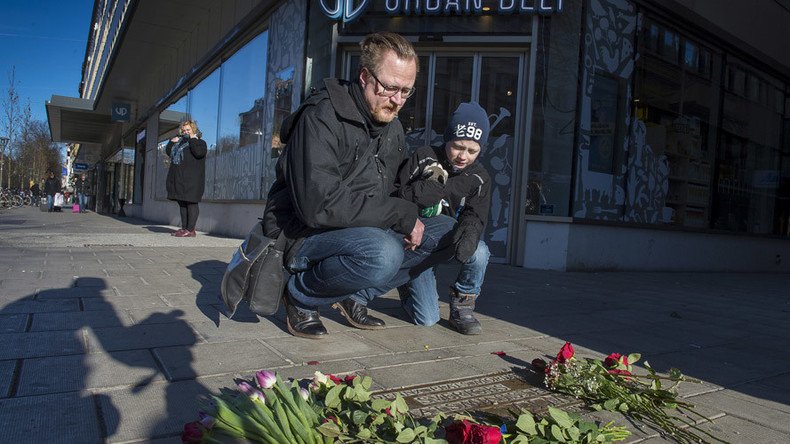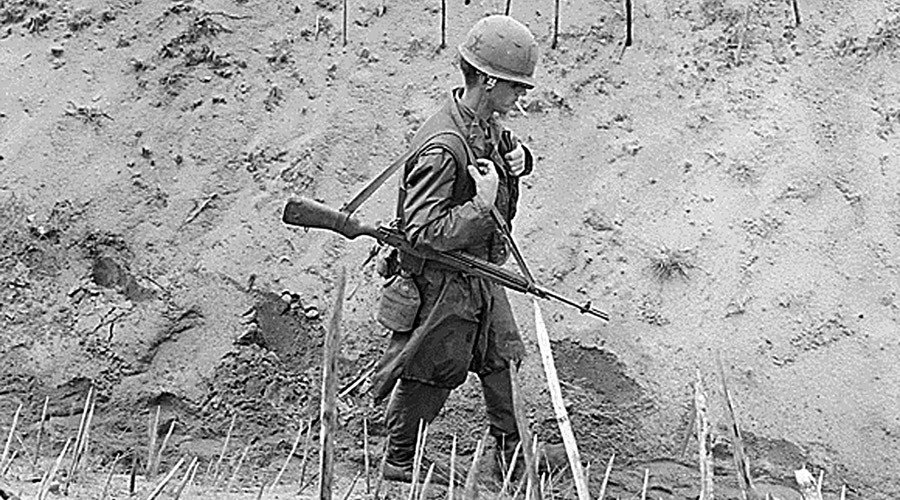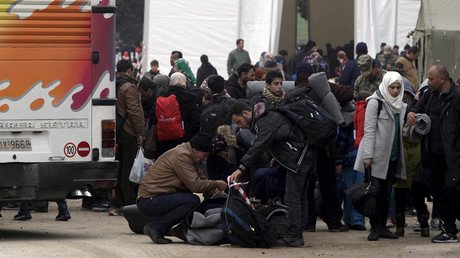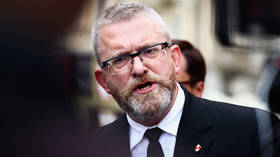The murder of Olof Palme: Why we must never forget the Swedish socialist

Thirty years ago today, Swedish PM Olof Palme, one of the true giants of post-war European democratic socialism, was shot dead in Stockholm. The assassination shocked the world. Today, theories still abound as to who was behind his killing.
Palme’s death was a major blow to progressive, left-wing politics, coming as it did during a decade when the left was retreating in the face of neoliberal onslaught. You could argue that the European left has never really recovered from the loss of Palme – and that post-war western European socialism itself was murdered on that cold February night in Stockholm.
Palme served as Prime Minister of Sweden from 1969-76 and then again from October 1982 until his death.
At home, the “revolutionary reformist” greatly extended Sweden’s welfare state and improved health care and child care provision. His tax policies were redistributionist. Sweden pursued full employment policies under Palme and living standards rose. It was a great time to be a Swede – and particularly a working-class Swede.
Internationally, Palme supported the Non-Aligned movement and was a champion of oppressed peoples the world over. He was a strong critic of Apartheid South Africa and the western-backed fascist dictatorship of Augusto Pinochet in Chile. He supported the Palestinian cause, and opened direct links between the Swedish government and the PLO. He railed against the US’s imperialist war on North Vietnam. One of the most powerful speeches he ever made came in December 1972, when speaking on Swedish radio, he made clear his utter disgust with the US bombing of Hanoi.
“We should call things by their proper names. What is going on in Vietnam today is a form of torture. There cannot be any military justification for the bombings …. People are being punished, a nation is being punished in order to humiliate it, to force it to submit to force. That's why the bombings are despicable. Many such atrocities have been perpetrated in recent history. They are often associated with a name: Guernica, Oradour, Babi Yar, Katyn, Lidice, Sharpeville, Treblinka. Violence triumphed. But posterity has condemned the perpetrators. Now a new name will be added to the list: Hanoi, Christmas 1972.”
Can you imagine any western European leader denouncing a US bombing campaign in such strong terms today? It’s unthinkable. But it wasn’t back in 1972, when Europe had leaders like Palme who weren’t afraid to speak their minds. And while Palme’s Sweden did co-operate with NATO, European subservience to the superpower, as I argued here has made Europe – and the world – a much more dangerous place.
Palme returned to power in Sweden in 1982, at a time when the forces of reaction were gathering strength. Ronald Reagan, a Cold War hawk, was the new American president. In Britain, Margaret Thatcher – who Palme called a ‘true extremist’ – had already begun work on dismantling the progressive achievements of the post-war era.
Palme said: “I know that the Thatchers and the Reagans will be out in a few years. We have to survive till then.”
Tragically, Palme did not survive Thatcher and Reagan. The early 80s saw a worsening in US-Soviet relations as Reagan took a more aggressive stance to what he called "The Evil Empire.”

Palme though stayed committed to détente and trying to build better relations between East and West. In October 1985, just four months before his death, he decided to ban the visit of two US Navy ships to Sweden, on the grounds that their presence would be seen as provocative measure by the Soviet Union.
That decision came just one month after Palme had been returned to power in the election of September 1985. In that poll, Palme’s Social Democrats received 44.7 percent of the vote.
“One of Prime Minister Palme's long-range goals is to be able to point to a Social Democratic victory as evidence that Sweden examined the arguments of neo-liberalism in the 1985 campaign and rejected them. The election can thus determine whether neoliberalism will be politically viable in Sweden in coming years,” noted one Swedish political journal.
Palme was only in his late fifties and such was his popularity, could reasonably have expected many more years at the helm in Sweden.
But it was not to be. On the evening of February 28th 1986, the Prime Minister of Sweden went to the cinema with his wife Lisbet, to watch a comedy film, The Mozart Brothers. While the couple were walking back home together, Palme was shot in the back by a mystery assailant at close range. His wife was also shot, but survived. That evening, Palme, the man of the people, had gone out without a bodyguard.
In 1988, a drug addict called Christer Pettersson was arrested, tried and convicted for Palme’s murder. But in 1989, his conviction was overturned on appeal.
So if Pettersson didn’t do it, who did?
One theory is that Palme’s killing was ordered from South Africa. Colonel Eugene de Kock, a South African police officer, gave evidence in Pretoria in 1996 that Palme had been shot because he “strongly opposed the apartheid regime and Sweden made substantial contributions to the ANC”.
The Pinochet regime in Chile has also been linked with the killing.
The New York Times reported on Friday: “Only this week, a witness at the cinema that the prime minister attended the night he (Palme) was killed claimed to have seen a man resembling a known American agent working for the Chilean secret services under Gen. Augusto Pinochet.”
Another theory holds the CIA and the Italian Masonic lodge Propaganda Due responsible. This was based on a telegram from P2’s Licio Gelli which said that “Tell our friend the Swedish palm will be felled”. In 1990, an Italian television documentary claimed that the CIA paid Gelli to foment terrorism- but the CIA denied any involvement in Palme‘s death.
In 2014, there was another development as it was revealed that the Swedish crime author Stieg Larsson - who died in 2004 - had sent the police 15 boxes of files in connection to his own investigation into Palme’s murder. The newspaper which was given access to Larsson's files found that a suspect for the killing - a right-wing activist who had links to a man who had close links to South African security forces - did not, after all, have an alibi for the time of the murder.
Swedish police have interviewed thousands of people but 30 years on, the murder of Olof Palme remains officially unsolved.
Probably we will never find out for sure who killed Palme. A man who always stood up for the underdog, certainly had plenty of powerful enemies, at home and abroad. “People love conspiracies because there are good reasons to be suspicious. My father had enemies who were prepared to act,” said Joakim Palme, Mr. Palme’s eldest son, was quoted as saying in the New York Times.
At Palme's funeral, his successor as Swedish PM, Ingvar Carlsson, said peace was Palme’s “most important task, because he saw war as the greatest threat to humankind.”
What is clear is how Europe desperately needs a politician like Olof Palme today. Across the continent, neoliberal policies have destroyed many of the achievements of the post-war era.
Welfare provision has been cut, and publicly owned enterprises have been privatized. The Age of Greater Equality has been replaced by a new Age of Inequality.
Parties of the left, which stood up unequivocally for working-class interests in the era of Olof Palme have moved to what is misleadingly called “the center ground,” but really means acceptance of neoliberal/neocon extremism.
Instead of championing the underdog domestically and internationally, European parties nominally of the left became the champion of elite interests. We saw the most grotesque example of this in the phenomenon of Tony Blair’s pro-war, neocon and hedge-fund friendly New Labour Party in Britain.
It’s important that we don’t forget Olof Palme as his career shows us that there is an alternative to the current international finance capital-friendly policies of austerity, privatization and war.
With the far-right making major advances on the continent, the left needs to make a clean break with neoliberalism and neoconservatism, and adopt the populist, anti-war, anti-imperialist, pro-worker policies that Olof Palme espoused.
Some will say that the forces of global capital are simply too strong to be defeated, and will point to the fate of Alexis Tsipras and his Syriza party as an example.
But Greece’s mistake was to put staying in the Eurozone above ending austerity.
Left-wing populism can succeed, but only if the leaders of the movement are strong and fearless and brave enough to “call things by their proper names,” as Palme was. And there’s one more lesson that we can learn from the career of Sweden’s greatest socialist. For leaders who want to challenge privileged interests and make the world a better place for the majority, bodyguards and bullet proof vests are probably a very good idea. At all times.
The statements, views and opinions expressed in this column are solely those of the author and do not necessarily represent those of RT.














